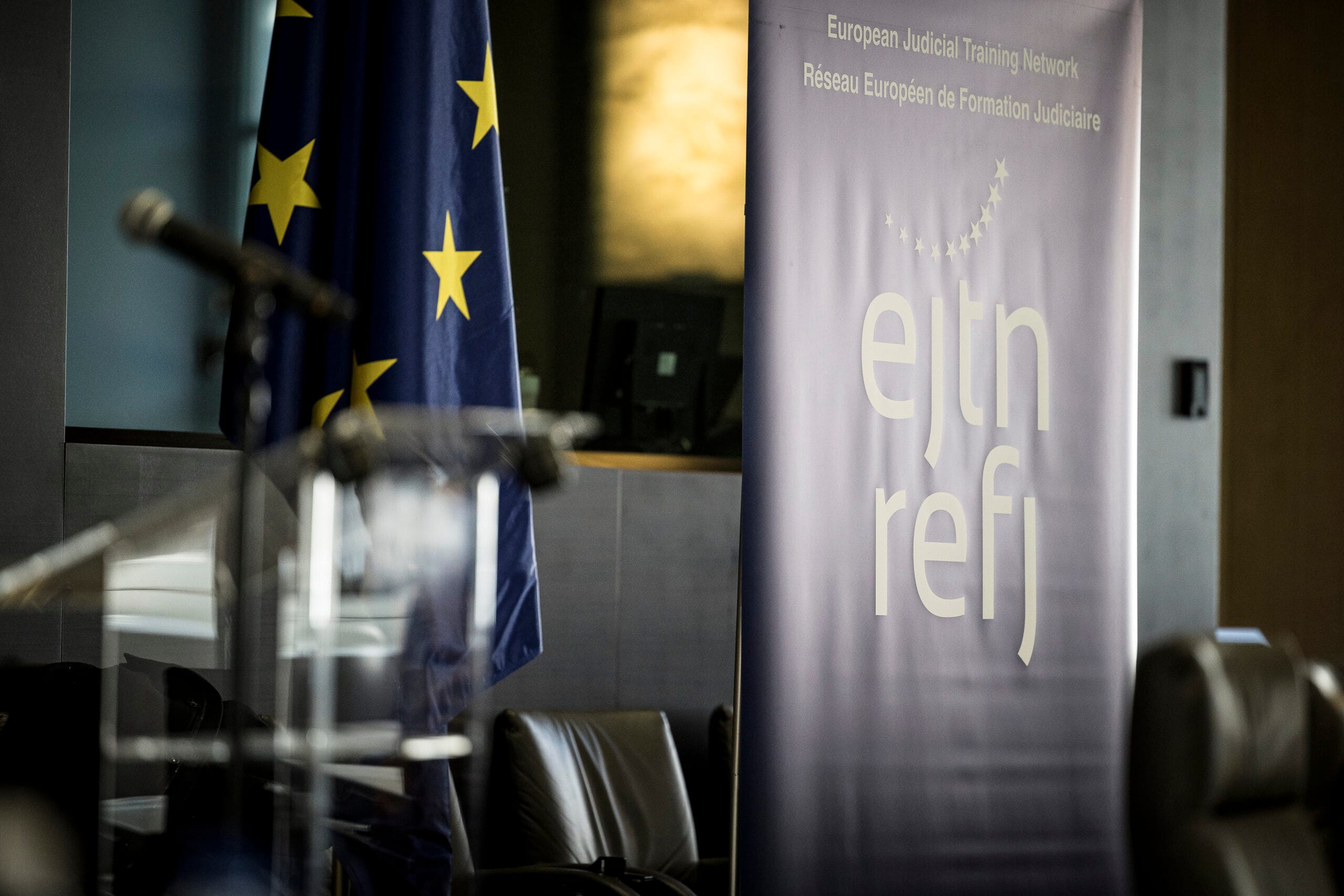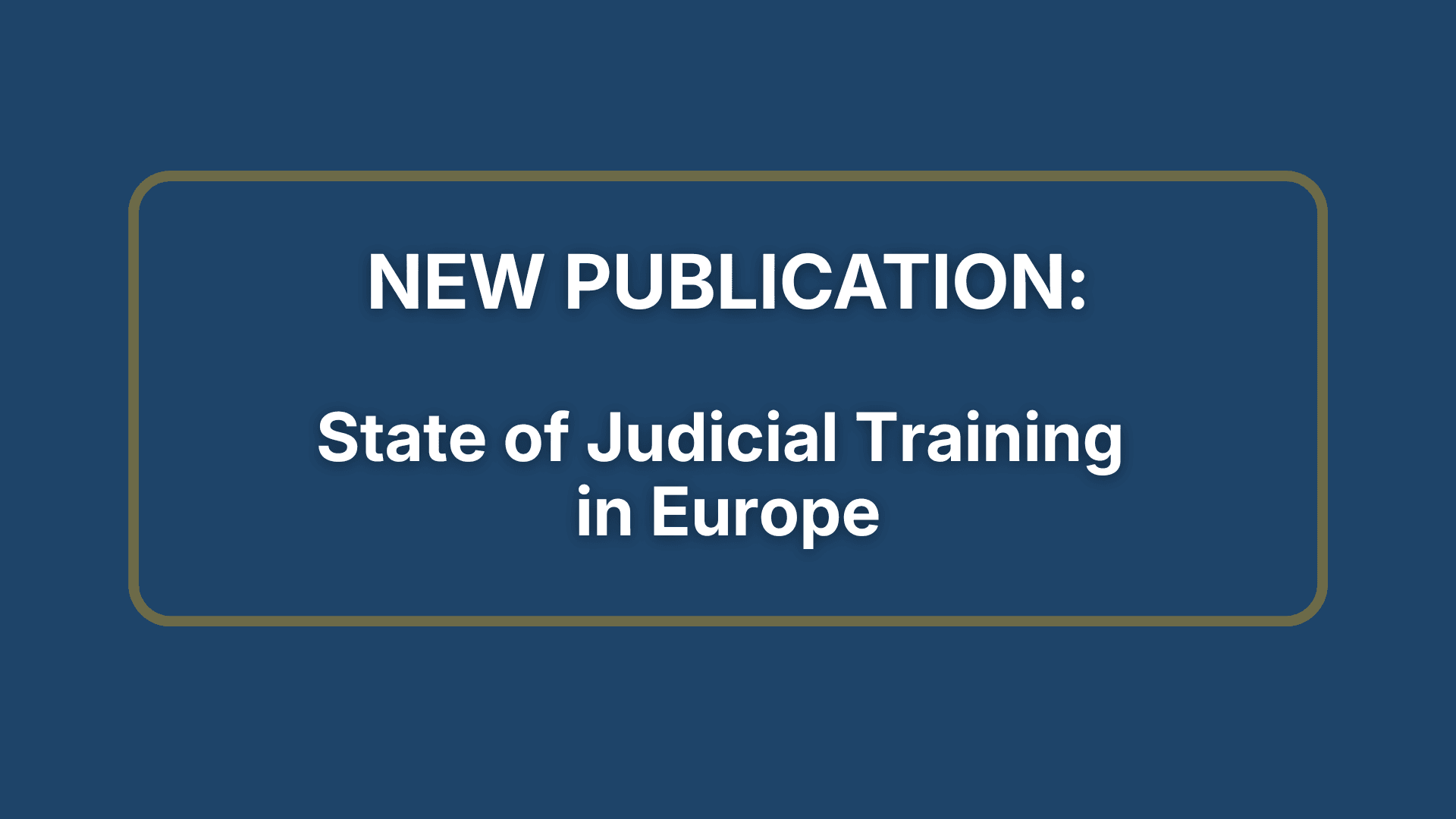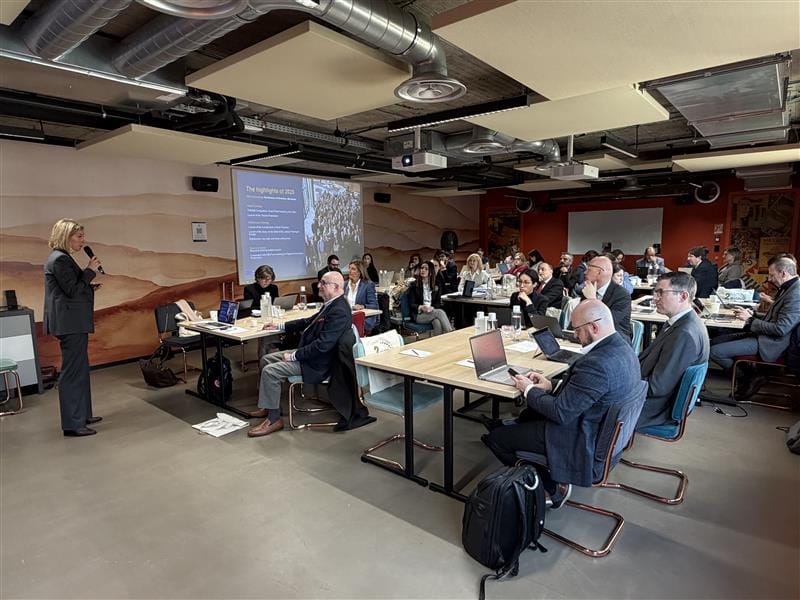On 14-15 October, the European Judicial Training Network successfully hosted a webinar titled ‘Digital Transformation and Instruments of Cooperation’, bringing together over 60 EJTN Activity Coordinators, responsible for designing EJTN’s activities, from across Europe. The event focused on preparing the judiciary for the digital era in collaboration with our partners from the European Commission, addressing critical aspects of EU judicial cooperation and the training needs arising from emerging digital tools.
The webinar opened with remarks from Working Group Digitalisation Convener, Haffide Boulakras, and WG Digitalisation Delegate and Member of Digitalisation of Judicial Cooperation Committee (EC), Antonella Ciriello, setting the stage for two days of insightful discussions. Key presentations by Katerina Entcheva, Legal and Policy Officer at the European Commission, and Wojciech Postulski, Team Leader at DG JUST, delved into Regulation (EU) 2023/2844 and the broader digitalisation of justice. These discussions highlighted that the digital transition cannot be achieved without judicial training, as foreseen in Article 11 of the Regulation, which mandates training for judicial professionals. They also explained the upcoming implementation of the acts and emphasised the central role of training in ensuring smooth implementation.
“The digital transition cannot be achieved without judicial training, as mandated by Regulation (EU) 2023/2844. Training is key to ensuring a smooth adaptation to the digital tools that will transform justice across the EU,” Entcheva highlighted.
“EJTN has a crucial role in promoting the digital transition of judicial training methodologies, leveraging its network structure to roll out diverse, adaptable, and multilingual training programmes across Europe,” Postulski added.
Day two featured national experts reflecting on the digital challenges their respective systems face. Notably, Dr Paola Giacalone from Vrije Universiteit Brussels emphasised the importance of upskilling the judiciary to handle digital transformation, while Stelios Bios provided insights into the evolution of civil law training. This focus is particularly pertinent as the next instruments to be digitalised are in the civil field, such as small claims and the European Payment Order.
Breakout sessions allowed participants to brainstorm solutions on how EJTN can adapt its activities to these emerging needs, with discussions focusing on short, medium, and long-term strategies. The EJTN Digitalisation Working Group is coordinating training on digitalisation across all EJTN activities, aiming to define a relevant and timely training offer to accompany the digital transformation, which also represents a significant change of mindset.
All EJTN working groups are joining forces: legal training to include relevant sessions on digitalisation when appropriate; the WG Linguistics to create a glossary, ensuring that justice professionals understand the meaning of each digital term; and the Judicial Training Methods WG to employ cutting-edge educational methods to make the training efficient and guarantee a successful and smooth transition. Additionally, exchanges are encouraged to share best practices among Member States and to maintain mutual trust.
The event concluded with a plenary wrap-up led by EJTN Secretary General, Ingrid Derveaux, summarising the key takeaways from the breakout rooms and outlining the next steps for EJTN’s training programmes.
“This webinar is an essential step in building a relevant and impactful training offer to support the digital integration of the European justice sector. While all digital tools aren’t necessarily new, what we are aiming for at the European Judicial Training Network is a complete change of mindset. The digitalisation of justice must be incorporated in all activities and support European Judges, Prosecutors and Court Staff in fulfilling their mission of delivering impartial decisions and upholding the Rule of Law. At the same time, they must master the new tools and technologies and be aware of the complexities the digital environment can cause,” Derveaux highlighted.
With this webinar, EJTN is also striving to anticipate long-term needs by building a relevant multiannual action plan, including other aspects of digitalisation, especially Artificial Intelligence. This webinar marks an important step in EJTN’s long-term strategy to integrate digital tools into judicial training, reflecting its dedication to empowering Europe’s judiciary to meet future challenges. The next step will be our Training Needs Assessment Meeting on 21-22 January 2025, bringing together all our partners to further enhance EJTN’s training offer.
For more information on the EJTN Working Group on Digitalisation, visit here.
For the latest updates on EJTN’s activities, follow us on LinkedIn.




